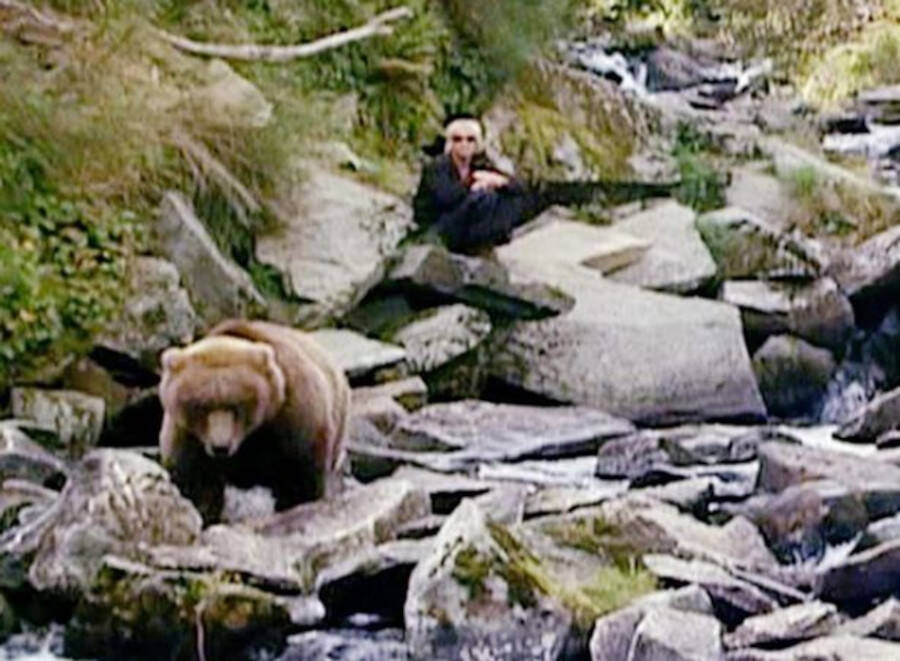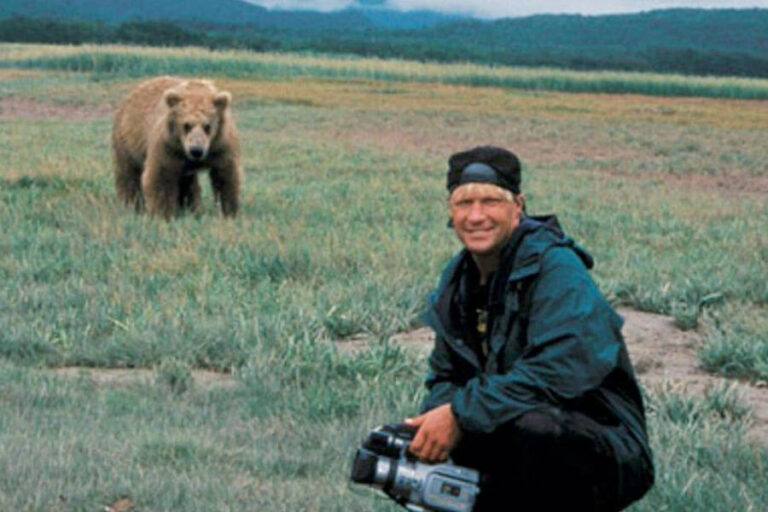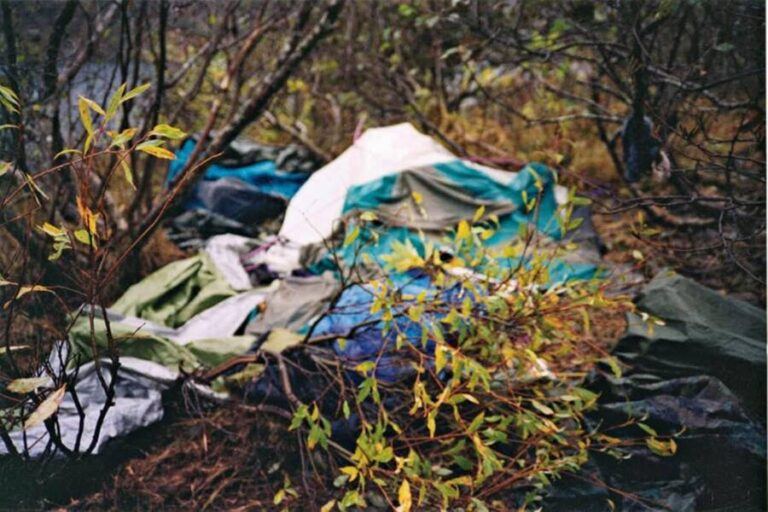What drives a person to willingly place themselves in the path of mortal danger, year after year, fueled by a perceived connection with the wild? Timothy Treadwell's story is a stark illustration of the human capacity for both profound empathy and perilous self-deception.
For thirteen summers, Timothy Treadwell immersed himself in the Alaskan wilderness, specifically Katmai National Park, to live alongside grizzly bears. He documented their lives, gave them names, and developed what he believed was a kinship with these apex predators. This commitment, however, ultimately led to a horrific tragedy, captured in a haunting documentary by Werner Herzog titled "Grizzly Man." The film serves as a chilling exploration of Treadwells complex relationship with the bears, the environment, and the dangerous blurring of boundaries between humans and the wild.
| Full Name | Timothy William Treadwell |
| Born | April 29, 1957, Long Island, New York |
| Died | October 5, 2003, Katmai National Park, Alaska |
| Cause of Death | Mauled to death by a grizzly bear |
| Known For | Grizzly bear conservationist, filmmaker, and author |
| Education | California State University, Long Beach (attended, but did not graduate) |
| Career Highlights |
|
| Personality and Approach |
|
| Notable Works |
|
| Documentary Film | "Grizzly Man" (2005, directed by Werner Herzog) |
| Reference Website | Wikipedia - Timothy Treadwell |
The documentary weaves together Treadwells own footage, shot over the years, with interviews and Herzog's poignant narration. The result is a deeply unsettling portrait of a man who, while driven by a profound love for bears, tragically underestimated the inherent dangers of his chosen lifestyle. His videos depict him interacting with the bears, often getting dangerously close, talking to them as if they were his friends, and even giving them nicknames. This close proximity, while providing incredible footage, also disregarded the fundamental rules of wildlife safety.
The film also offers an intimate look into Treadwell's personality and motivations. He had a troubled past, battling alcoholism and drug addiction, and the wilderness appeared to offer him solace and a sense of purpose. The bears became a surrogate family, a world where he felt understood and accepted. He saw himself as their protector, fiercely advocating for their well-being and railing against the perceived threats posed by hunters and park authorities. This, however, created a disconnect from the reality of the situation, making his interactions with the bears increasingly risky.
The story of Timothy Treadwell is often paralleled with that of Chris McCandless, the subject of Jon Krakauer's "Into the Wild." Both men, outsiders to the traditional ways of life, sought connection and meaning in the vast, unforgiving wilderness of the North. Both were young men who sought to rewrite their stories in nature. However, their approaches and experiences, though connected by a shared spirit of adventure, also revealed a fundamental difference in how they engaged with the environment. While McCandless's journey was driven by a quest for solitude and self-discovery, Treadwell's was dominated by a desire to connect with and protect the bears.
Despite warnings from park authorities, Treadwell's interactions with the bears were often risky. He continued his dangerous pursuit, ultimately leading to his tragic death in October 2003, as reported by The Mirror. He spent his time in the grizzly maze beyond the usual season. On October 5, 2003, Treadwell and his girlfriend Amie Huguenard were mauled to death by a grizzly bear, and the whole attack was caught on tape. The audio recording, though fragmented and horrific, offers a glimpse into the final moments of the tragedy.
Werner Herzogs approach to "Grizzly Man" combines the use of Timothy's extensive footage with his own critical and philosophical commentary. Herzog himself is a keen observer of human nature and the harsh realities of the natural world. He often questions Treadwell's actions and perception of the bears, pointing out the inherent dangers and the potential for romanticizing the wilderness. The film does not shy away from showing the brutal realities of the natural world, providing a stark contrast to Treadwell's romanticized vision.
The documentary doesn't only provide the viewer with Treadwell's footage. It showcases the stunning, at times idyllic, beauty of the Alaskan wilderness. There is not only the extensive observational footage of bears wrestling and fishing, foxes at play. Herzog incorporates interviews with people who knew Treadwell, and with experts who offer a more scientific perspective on grizzly bear behavior. These different perspectives add layers of complexity to the story, forcing the viewer to grapple with Treadwell's motivations, his methods, and the ultimate consequences of his choices.
The film reveals the chilling details of the attack, including the discovery of the gruesome scene by the pilot of Treadwell's floatplane. The grizzly bear, later identified and killed, was in the aggressive feeding period. Treadwell and Huguenard's tent and belongings were scattered, and their remains were found near the scene. The audio tape captured the sounds of the attack, which was initially analyzed to give a more complete and clearer account of the final moments. Treadwell's final desperate cries for help and his screams were heart-wrenching, while Huguenard's role during the attack was also revealed. It was a brutal reminder of the power of nature.
The documentary also examines the complex relationship between humans and animals. Ever since humans emerged as the dominant species, separated from animals by a few short links in the evolutionary chain, theyve been trying to prove that they arent all that different. Treadwell's story serves as a cautionary tale, reminding us of the inherent dangers of anthropomorphizing wild animals and the importance of respecting their boundaries. Treadwell's story highlights the importance of scientific understanding and the need for cautious, respectful engagement with wild animals, especially apex predators.
The film's impact extends beyond its visual and auditory narrative. In the summer of 2005, Werner Herzogs "Grizzly Man" made a minor celebrity of Timothy Treadwell, a man alternately seen as either a reckless crank or a naive idealist. It sparked a debate about the nature of human interaction with the natural world, the dangers of obsession, and the complex motivations that drive people to seek meaning in the wilderness. It forced viewers to confront uncomfortable questions about the nature of love, loss, and the fundamental fragility of life.
Treadwell, as the documentary highlights, was not scientific in his approach. He believed these wild animals cared about him in some mutual way when theyre just wild animals. In the real tape, you cannot hear the bear at all, only Tim. The reason Treadwell left the tent was to address the bear, not urinate. In the video he initially asks for help from his gf, says like i'm dying out here later in the attack he tells his girlfriend to run for her life. Even after his death, the questions continue to be asked, the opinions divided, and the lessons learned continue to resonate.
The legacy of Timothy Treadwell remains a subject of intense debate. Was he a visionary, a protector of bears, a victim of his own idealism? Or was he a reckless man, whose actions ultimately led to tragedy? The film, with its stark imagery and Herzogs thought-provoking commentary, leaves the viewer to grapple with these questions, reminding us of the enduring power of the natural world and the complexities of the human condition.
- Steven Greener Meet Tamron Halls Husband Music Exec
- Michael B Jordans Dating Life Relationships In 2025 A Timeline


